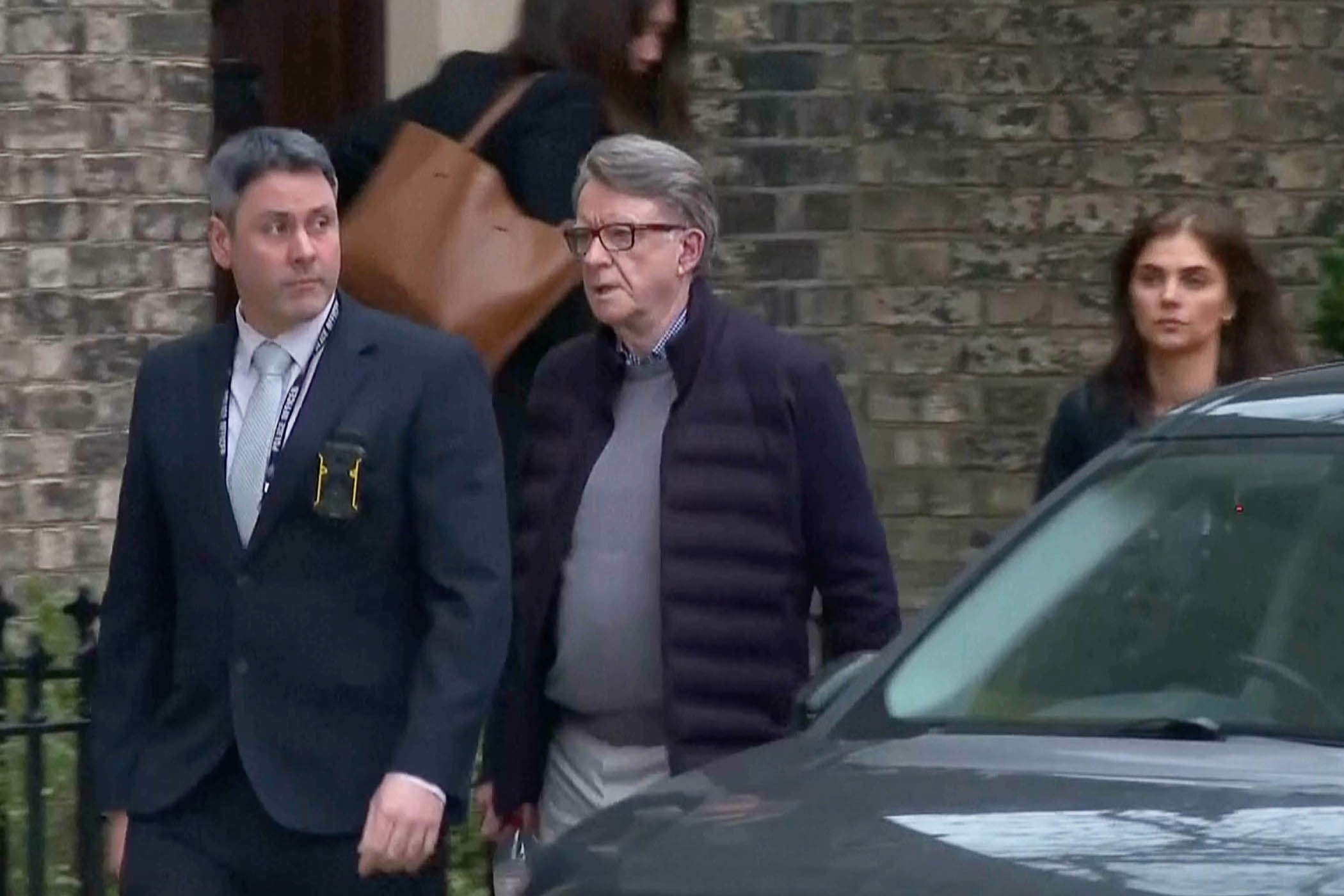Looking back on the most lowering week of this government’s torrid life, one member of the cabinet mused: “Something like this probably needed to happen.” That’s an interesting take on the days of mayhem in which mass backbench revolt forced ministers to gut their welfare legislation as it was being debated in the Commons and tears trickled down the cheeks of a distressed chancellor in the full heat of prime minister’s questions as she sat behind her oblivious leader. A different member of the cabinet speaks for more than himself when he says: “A glaring spotlight has been shone on what needs to change.”
The great rebellion over welfare, combined with the thought-concentrating milestone of a year in power, demands a rethink about how this government operates. On that, everyone agrees. Minds turn to a reshuffle, the default option for a prime minister who badly needs a reboot. There is only one change to the cabinet’s personnel that might make a seriously consequential difference, for good or ill, to its direction and public perceptions of its performance. There is a big decision for Sir Keir to make and that is whether to keep Rachel Reeves at the Treasury or to find himself a new chancellor.
The case for removing her is so easy to argue that one regularly hears it from the averagely vituperative Labour backbencher. In the eyes of her angry band of critics, Ms Reeves tops the list of those responsible for leaving the government shipping water in a sea of troubles. She made the horribly unpopular, and since reversed, decision to remove the winter fuel payment from the vast majority of pensioners.
She drove the attempt to cut welfare payments which culminated in humiliation on the floor of parliament. Worse for her authority for those in the know, the negotiations with the Labour rebels were primarily conducted not by her, but by Angela Rayner, the deputy prime minister and the one senior figure to emerge from this stramash with her status enhanced. One associate of Gordon Brown remarks: “Can you imagine Gordon allowing that to happen?” No, I really cannot.
For the battalion of left-wing detractors, the chancellor is also one of the leading authors of the “original sin” of this government. That was to rule out touching any of the rates of corporation or income tax and VAT, leaving itself fated to spend less than it would like on the public services it promised to rebuild while hiking taxes on groups, such as farmers, whose loud complaints are catnip for a largely hostile media. Looking mournfully at the opinion polls, a growing number of Labour MPs are becoming resigned to being one-term wonders and behaving accordingly.
There’s truth in this charge sheet, but it is not the whole truth about her 12 months at the Treasury. One thing her internal critics ignore is that she is already taxing a lot and borrowing a lot to spend on progressive causes. Wes Streeting’s chances of transforming the NHS into a health service Britain can be proud of again would be that much lower had he not received a substantial cash boost from the chancellor. There have been financial uplifts for capital projects, renewable energy, transport, free school meals and social housing. The minimum wage, especially that for young workers, has been hiked significantly. She’s thought more seriously about reforms which aim to boost economic growth than anyone else who sits at the top table.
The government is not getting the credit ministers think it deserves for the things it is doing that ought to be liked by Labour people. I don’t think it is fair to lump all the blame for that failure on the Treasury. Communication is on all of the cabinet, up to and especially including the leader of it. It is the prime minister who has the central responsibility for fashioning an attractive vision of the future and conveying it to the country. If the government lacks a compelling over-arching story, the buck stops with Sir Keir, not his nextdoor neighbour.
The chancellor’s fiscal rules are loathed by the bolshie sections of her party
The chancellor’s fiscal rules are loathed by the bolshie sections of her party
The chancellor’s fiscal rules are loathed by the bolshie sections of her party who see them as a straitjacket which is suffocating the government. The dissenters needed a reminder of why those rules matter. They got one when her tears – triggered, she says, by something not related to the stresses of her job – upset the markets. Sir Keir blamed his failure to notice that she was in distress on the “bang, bang, bang, bang” theatrics of PMQs.
Traders of government debt and currencies did clock how utterly miserable she was looking. More, they noticed the prime minister’s initial reluctance to respond to the Tory leader Kemi Badenoch’s baiting with a full-throated backing of his chancellor. The pound was sold off and the price of government borrowing spiked upwards. Where markets had stayed calm in response to the welfare shenanigans, they threw a tantrum at the thought that the chancellor and her constraints might be shown the door. Somebody still loves you, Rachel. Or at least the bond market vigilantes are clearly wary of what might replace her. Sterling bounced back and gilt prices settled down when Sir Keir issued a belated declaration that the chancellor would be staying where she is “for a very long time to come”. One minister who knows his history remarks: “Harold Wilson used to complain about the gnomes of Zurich. This is a rare example of the bond markets doing a favour for a Labour chancellor.” Her people argue that the tears have, paradoxically,made the chancellor safer by humanising her rather robotic public image and underlining the risks of removing her.
Successful leaders need a sliver of ice in their hearts. Sir Keir’s assurances that Ms Reeves is secure in her job to the next election “and beyond” can’t be taken to the bank. He said it because he had to say it. The prime minister, who is on his third chief of staff, has a history of ruthlessness which suggests that he has enough ice in his breast to fire her from the Treasury if he concludes that is in his best interests. But would it be? There’s great peril for prime ministers who make a scapegoat of their chancellors, as Liz Truss was the most recent to discover.
Newsletters
Choose the newsletters you want to receive
View more
For information about how The Observer protects your data, read our Privacy Policy
Should she stay or should she go? If Rachel Reeves stays, there may be trouble. If she goes, it could be double.
Photograph by Jack Hill, WPA Pool/Getty



